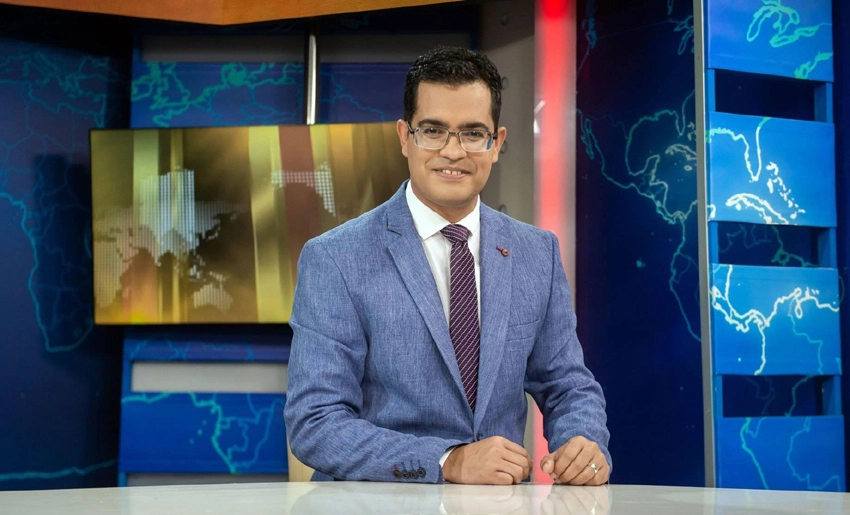Abdiel Bermúdez from Holguin comes from a family of doctors and never thought of being a journalist, but of continuing with the family tradition. But his thing was to write. “It was something that moved me. And I didn‘t do it badly, according to my Spanish teachers. I was a contestant in that subject at the IPVCE and I even won national cups.”
The vocation prevailed and he is currently a recognized journalist in Cuba. “At the beginning, everything is shocking: you leave university and you think you can take on the world, but when you go to open your mouth something makes you put your feet on the ground and tells you that not everything you learned in academia is materializable.”
Abdiel says that working in Holguin gave him many tools. He also had very good teachers such as Salvador Hechavarría, Marel González, Mayté Santiesteban; his cameraman brothers, Eddy and Oramas, and editors “who taught me what I know“.
“It told the visions of a group of wanderers in Holguin. Together with Toti Carballosa, Oramas, Raúl Algarín and Víctor Leyva I learned that television was pure magic. And I wanted to stay there telling stories. The documentary gave me a lot of joy, and with it the awards began to smile at me.”
At first, the written press was his passion. He was at the Onelio Center and his first home was the newspaper Ahora. Whenever he could, he collaborated with Juventud Rebelde, Cubadebate, La Calle del Medio and other media.
He didn’t stop there. The programs Dimension 1110 and We are so close, where he was in charge of the “Young Word” section, opened the doors to the world of radio.
Perhaps one of the most difficult steps I have taken was to come to live and work in the capital. I was very independent in Holguin and I was in my natural space. He knew the sources, the stage and the people. I knew what I wanted, what I could do, how to do it. When I arrived in Havana everything changed: I had to learn to edit in Premiere, get new sources, know the spaces and directions, earn a place among my colleagues.
One of his greatest experiences on a professional level was working as a correspondent in Haiti for a year. At 29 years old, he arrived in a country where another language is spoken and there are different customs and culture, but, above all, with a different and harsh reality.
“I was in charge of an unknown work team, which later became a family, but I went to take on the world and tell my vision of the most suffering people on the continent. After Haiti, I was never the same again. My wife tells me that too.”
Abdiel says that every day, when he goes out with the camera or works at 1 p.m. on the newscast, he rethinks the profession he chose.
I tell myself that it is not enough. That we can do better. Not only me, I‘m talking about the people who do journalism in Cuba. We can all do better. You have to be consistent with what you believe in as a human being, not just as a journalist. In this life, you‘re congruent or you end up being a caricature. Ethics is not lying or accepting a lie as truth.
The reporter confesses that he still has a lot to learn and does not conceive of journalism as a race to earn money, but to change the world.
And that, he says, takes unlimited preparation and passion, many blows against the walls of censorship and power, the probable ingratitude of people who ask the journalist to solve their problems, although that may not be in their hands.
With information from Cubadebate/ Translated by Radio Angulo
- Installation of Photovoltaic Systems in Rural Communities in Holguin - 19 de January de 2026
- 39th City Salon Opens in Holguin - 19 de January de 2026
- Habanos Festival Among Cuba’s Most Important Tourism Events - 19 de January de 2026

